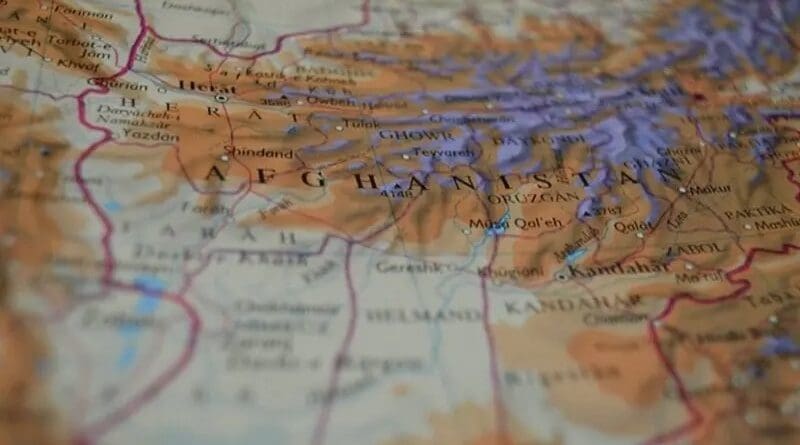Bridging The Afghanistan Gap In Pakistan–US Relations – Analysis
By Claude Rakisits*
Pakistan has been urging the international community, including the United States, to comprehensively engage with the Taliban. But Islamabad’s true interests are unclear, as anti-Pakistan terrorist groups freely operate in Afghanistan and Pakistan–Taliban relations remain poor.
During Pakistan Foreign Minister Bilawal Bhutto Zardari’s September 2022 trip to the United States, he repeatedly argued for full engagement with the Taliban. He argued that Afghanistan faces economic collapse without aid, which will lead to a further deterioration of women’s rights and exacerbate the humanitarian crisis.
This argument was repeated by Pakistan Prime Minister Shahbaz Sharif during his address to the United Nations General Assembly on 23 September 2022. He argued that the Taliban would respond more positively to comprehensive engagement and economic support rather than isolation.
Foreign Minister Zardari seems to be simply going through the motions of making a case for international engagement, possibly in an attempt to improve poor bilateral relations. Pakistan and Afghanistan are yet to establish full diplomatic relations and there have been no ministerial visits for months from either side.
The lack of engagement is a far cry from when the Taliban was in power between 1996 and 2001. Pakistan was one of the only three countries at the time to recognise the Taliban’s rule of Afghanistan. There was an expectation in Pakistan that a return of the Taliban to power would bring improved bilateral relations.
While there is low- and mid-level US engagement with the Taliban, there are two fundamental reasons that the United States — and most of the international community — do not fully engage the Taliban. The continued violations of women’s rights, including barring girls from attending secondary school, is a major point of contention.
The Taliban’s continued harbouring of terrorist non-state actors breaks a critical element of the US–Taliban’s Doha Agreement that enabled the United States to end its 20-year military presence in Afghanistan.
The Tehrik-i-Taliban Pakistan (TTP) and the Balochistan Liberation Army (BLA) are particularly concerning for Islamabad given their frequent cross-border terrorist incursions into Pakistan. The TTP is on the US State Department’s list of Foreign Terrorist Organisations and has deep links with the Taliban, which was instrumental in its formation in 2007.
The TTP is estimated to have between 4000 and 6500 fighters. The number of terror attacks in Pakistan originating from Afghanistan has increased dramatically since the Taliban returned to power in 2021. Still, Pakistan entered into negotiations with the TTP — mediated by the Taliban — in June 2022. This led to a temporary ceasefire that broke down in September 2022.
The BLA has organisational links with the TTP and principally targets Chinese citizens and Chinese-built infrastructure in the western province of Balochistan. Although thousands of Pakistani military personnel have been assigned to protect Chinese workers involved in the massive US$60 billion China–Pakistan Economic Corridor projects, they have been unable to prevent these attacks.
Pakistan has repeatedly demanded that the Taliban shut down the TTP’s and BLA’s bases in Afghanistan. The Taliban has ignored these requests and likely will not turn on these groups — especially the TTP — given the long-standing multi-layered connections it has cultivated.
Another critical reason for the Taliban to not hunt them down is the fear that group members may defect to the Islamic State Khorasan Province (ISKP). The ISKP is a particularly aggressive and effective Afghanistan-based terrorist organisation and has already managed to attract defectors from the Taliban and the TTP.
Despite Islamabad and Washington’s differences in their dealings with the Taliban, both agree that the TTP, the BLA and other terror groups must be prevented from using Afghanistan as a launching pad for terrorists. The elimination of al-Qaeda’s leader, Ayman al-Zawahiri, in Kabul in August 2022 by a US drone strike — most likely originating from Pakistan — confirms that the two countries agree on this issue.
Pakistan–US relations are probably better than they have ever been for many years. This is despite Washington developing a strategic relationship with India — Pakistan’s arch-rival — since 2005. The departure of Imran Khan as prime minister in April 2022 undoubtedly helped improve bilateral relations. Khan’s regular public criticisms of the Trump and Biden administrations during his tenure did not help matters.
Given South Asia’s geography, Afghanistan will always be an important issue in Pakistan–US relations. But since the United States left Afghanistan in 2021, the Biden administration has increasingly approached Pakistan in its own right. This de-hyphenation of Pakistan from Afghanistan has been greatly appreciated by the Sharif Administration.
Due to historical and geopolitical reasons, Islamabad and Washington’s approach toward the Taliban differ. Yet, they would agree — at least privately — that as long as the Taliban remains friendly with terrorist groups, full international engagement is out of the question.
*About the author: Claude Rakisits is an Honorary Associate Professor in International Relations at the Australian National University and a Visiting Research Fellow at the Brussels-based Centre for Security, Diplomacy and Strategy.
Source: This article was published by East Asia Forum

